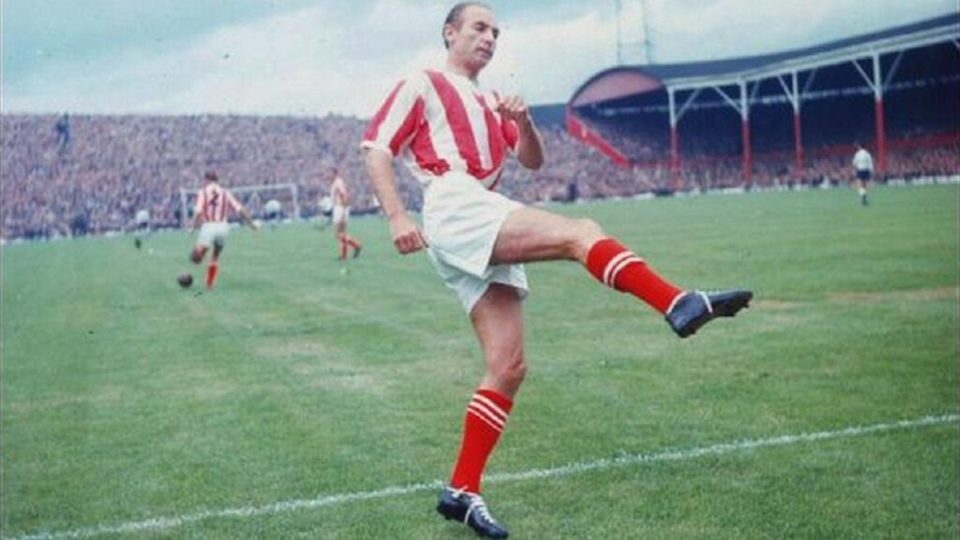Who was The Wizard of Dribble? Why was he famous? In this article, we discover the life and career of Sir Stanley Matthews!
The Wizard of Dribble: Who Was He? Here Are Fun Facts About Sir Stanley Matthews!
The Wizard of Dribble was known for astonishing fans:
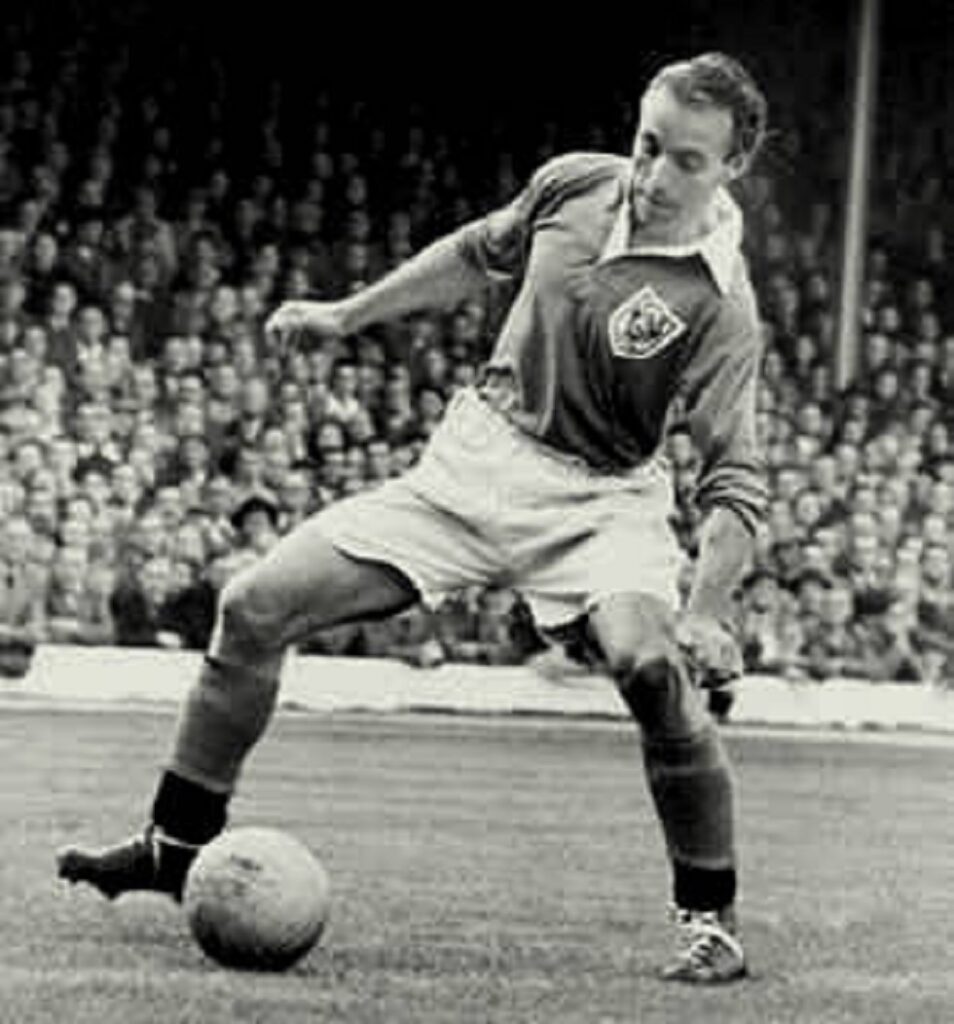
The English striker had no equal to captivate the crowds. Blackpool FC, where he wore the colors for fourteen years, thus remains the only club in the history of the English championship to have attracted more than one million spectators on the move over a season, that was in 1950-1951!
Why was Stanley Matthews called The Wizard of Dribble?
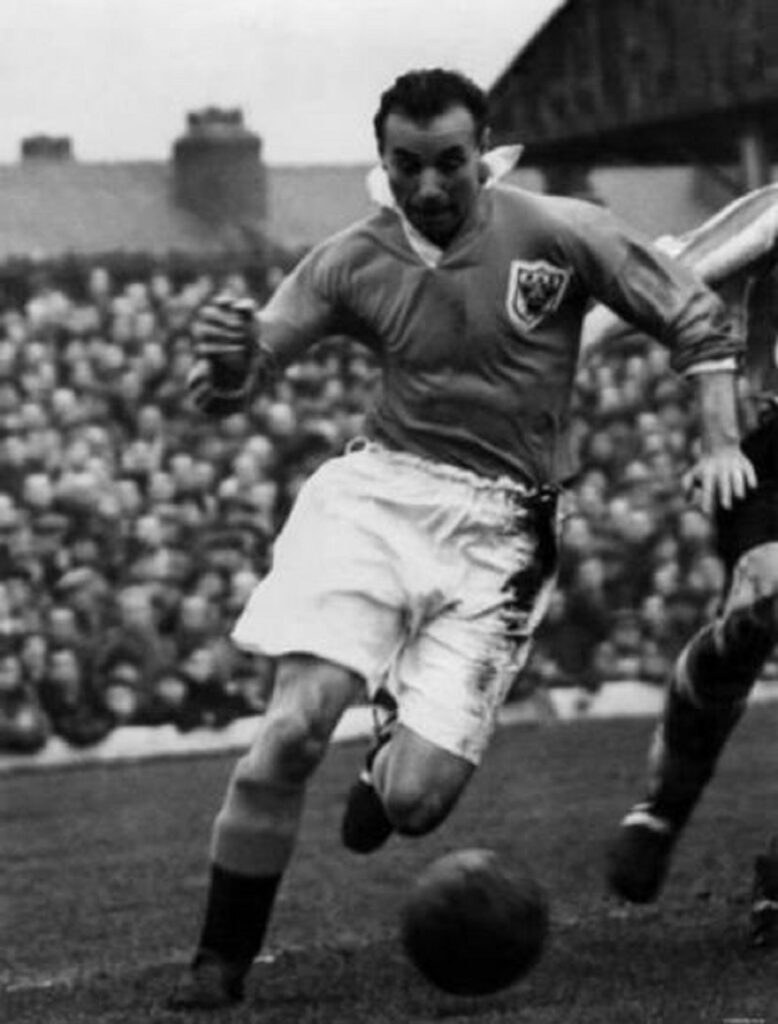
If Matthews did not invent the dribble, he sublimated it like no one else. In his book, The Football Man, published in 2006 and considered one of the greatest works of the sport of all time, the writer of the book Arthur Hopcraft is adamant.
For him as for many others, the talent of Stanley Matthews, sphere at his feet, is unequivocal. As proof, during his life as a footballer, he was nicknamed “the wizard of dribble”, in relation to his outstanding qualities in the field, but also because his career has lasted for a long life.
For more than three decades, Sir Stanley Matthews, the first football player in history to be knighted by Queen Elizabeth II, has raised crowds from all over the Kingdom. By winning titles, including a Ballon d’Or, obtained in 1956, for the first edition of the trophy, designating him as the best European player of that year.
A childhood ascent in dribbling led to the famous nickname:
Stanley Matthews was already as a young child impressed with his speed of execution and his qualities as a dribbler. And realizes that this sport can eventually become his domain. The crossing promises to be long, rough, and trying. But that doesn’t stop Matthews, who loves the game above all else: “I loved picking up a small ball and playing with it. I even used to go to the butcher to get pig bladders to inflate them and make them into a balloon. I even played at night, under the streetlights. It was my pleasure,” he said in 1995 on BBC Radio 5 Live.
Stanley Matthews would have been 107 this year:
Born in 1915 in Hanley, Staffordshire, the Englishman and his three brothers were mainly educated by their father, Jack, a barber and local boxing champion. From him, they learn the values of effort, combat and self-transcendence. A lesson that little Stan retains when he gets into the ring, pushed by his dad, but also and especially when starting out in football, at eleven years old.
At 17, the Wizard of Dribble played for the Potters:
Stanley Matthews’s dream came true in 1932, when he signed his first contract for the Potters. At 17, the third of four brothers in the Matthews family is already paid like a grown-up. But, his head on his shoulders, the kid did not get fired up, affirmed his status as a young prodigy and quickly became a driving force – and scorer – for his team, as the matches progressed.
An immense dedication to discipline helped him at age 19:
Thanks to his technical facilities, but also and above all thanks to his training, for which he spends a lot of time and energy. But that’s not all. Lifestyle is an integral part of the career of a top athlete, and Stanley Matthews attaches great importance to it:
“I was lucky to be well advised: I started to eat more salads, more fruit, and every Monday I was fasting. I only did this on Mondays, but it made me feel good”, he confided once about the importance of the constant job which pays off rather quickly, offering him a taste of the joys of the national team at just 19 years old.
With the Three Lions, he was considered too offense oriented:
Playing for the England national team, with his white colored jersey on his back, Matthews is far from bad, but does not obtain sensational results at first.
He made a place for himself by standing out in the selection of the Football League. But despite his efforts and his ability to make a difference, the Englishman cannot win the trust of his coaches. Because of his young age first, because his game is considered too offensive, then, in particular according to Walter Winterbottom, coach of the country over the period 1947-1963.
However, if he doesn’t get big medals in his pocket with the Three Lions, apart from nine British constituent nations championships – anyway – “the magician”, the wizard’s other nickname leaves with memorable memories when he retires from international football. After 52 selections spread over 23 years of good and loyal service.
Stokes and Blackpool came calling:
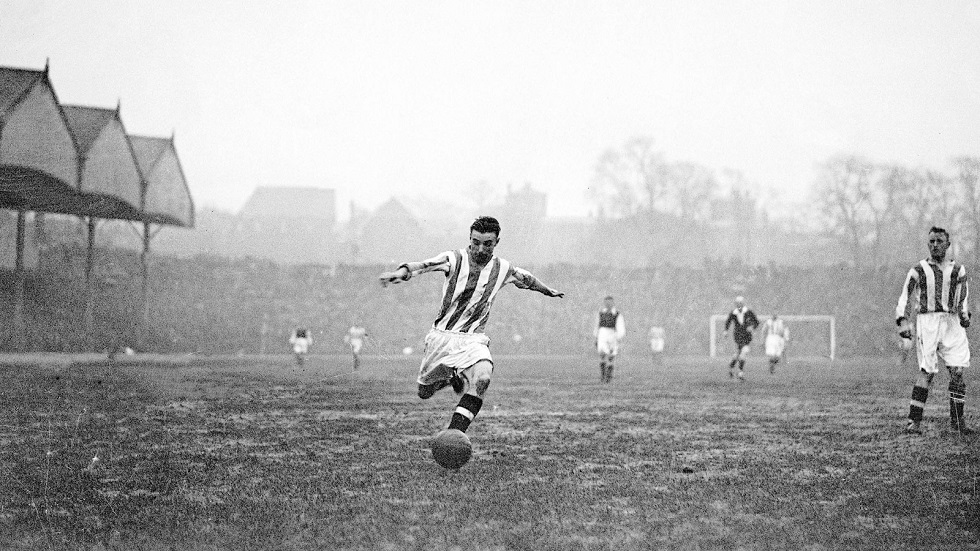
Also, if beautiful England did not really have a place in the heart of the genius, it is because his first two loves filled him for eternity. The latter, Stoke City and Blackpool, are the only two clubs he has played for. At first, he spent the first fifteen years of his footballing life, and forged a reputation for himself thanks to high-level performances, as during the 1935-1936 season, during which he played 45 matches, deployed his range of dribbling like no one before him, and takes the Potters to an unexpected fourth place in the standings. The best in the history of the club, which already sees itself keeping the player until the end of his career.
The Second World War cast a dark spell on the Wizard of Dribble:
In 35 years of career, he will have especially known the Second World War, which absorbed six of his most beautiful springs (from 24 to 30 years), six years during which Sir Matthews rages in the Royal Air Force.
For six years, the British Air Force makes him a “physical trainer”, with the rank of corporal.
He will thus continue to play both for his former club and for Blackpool, where he is based. Stanley, who was located in Blackpool, bought a hotel.
It was at this time that he began playing for the Seasiders. He even played on behalf of Arsenal (to the workforce also reduced by the obligations of patriotic duty), notably during a friendly match against Dynamo Moscow in 1945.
He played 87 matches during the conflict, in addition to the 69 capes he recorded with his team, Stoke. Including that of the Burnden Park tragedy opposite Bolton, where 33 people died and 400 were injured, after a violent crowd movement. An event that considerably affects the officer, who, moreover, no longer has a good relationship with his management. And which triggered once and for all his desire to leave, just after the 1946-1947 exercise, during which he was involved in nearly 90% of Stoke’s goals.
The Wizard of Dribble returns! This time for the Golden Ball:
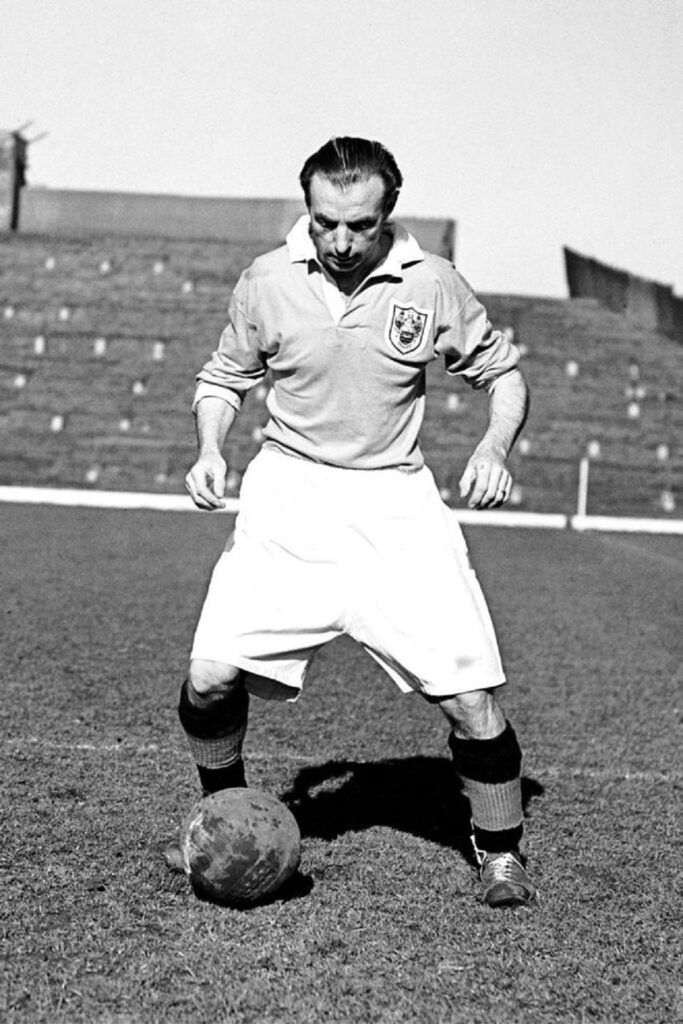
Transferred to Blackpool at the age of 32 for the modest sum of 11,500 pounds (about 15,185 euros).
Here, he indeed has maximum freedom on the ground, under the command of Joe Smith.
By virtue of his success, Stanley won the first edition of the FWA, a trophy rewarding the best player of the season in England. But the crazy dribbler is aging, and his physique is playing tricks on him over the seasons. Fortunately, his vegetarian diet keeps him in shape and will see him play in three FA Cup finals, including two losses, against Manchester United and Newcastle. It is during the third that the thirty-something shows who is the boss. Led by two goals by Bolton, the Orange and White relied on their star, who gave caviars and allowed Blackpool to win on the wire, 4-3. A part that remains engraved, even today, The Final Matthews ”. Then, the seasons of Blackpool prove to be complicated and in 54-55, the press openly criticizes the winger in relation to his age – 40 years old – so unusual for a football player. He takes it upon himself to silence it by winning, a year later, the first edition of the Ballon d’Or also called the golden ball, by beating exceptional players such as Di Stéfano or Kopa.
The Sir of Wizardry faces a bitter-sweet ending:
This trophy, the sacred tangability of an entire career, is the last great coup of the now veteran, who returns to Stoke, then in the second division, for a last footballing adventure, which will last five years. As if to close the loop. A successful last challenge since he brought his training club back into the elite, winning another title for the best player in the country, and was knighted by the Queen of England, a few weeks before definitively stopping typing in the leather, to fifty banks. And to continue on a coaching career to forget. Unlike his career as a player, during which he made an impression, starting with that of King Pelé, according to whom the striker ” showed the way football should be played”.
In the most beautiful way, Sir Stanley Matthews will sum up those decades spent with the ball, in “The Way It Was” – his autobiography
“Football has punctuated my life for more than 80 years. I loved it from the depths of my being. I loved it for the beauty of the game”.
Stanley Matthews was a black and white footballer:
A hero of the times when football lived without cameras and when legends were shaped in writing. The praises of the greatest said of him that he was the greatest, and he did everything to remain so.
With a bald head, and a rather skinny, hunched-back..one thing is certain, Stanley Matthews did not conquer the world of football in the twentieth century thanks to his physical beauty. No, he did it with his talent, his humility, and his longevity. Qualities that will have marked the whole of England, from civilians to the queen of the country.
